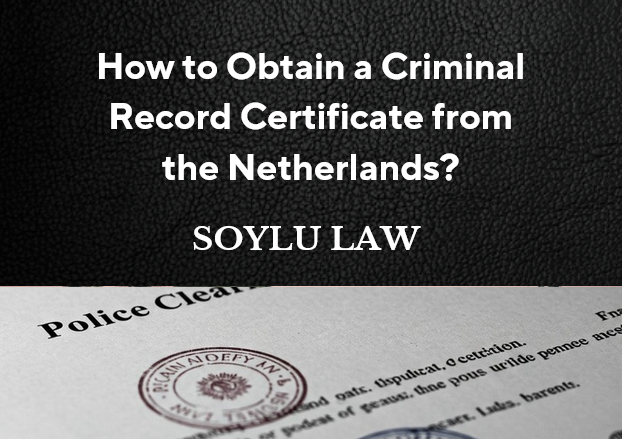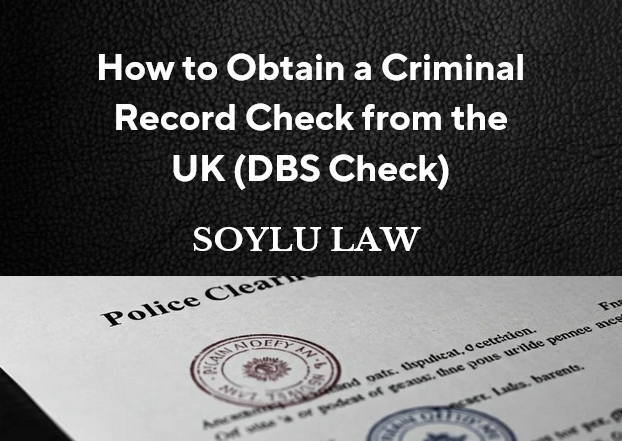Obtaining a criminal record certificate from Belgium is a crucial requirement for various professional and administrative purposes. The document, known as “Extrait du casier judiciaire” in French and “Uittreksel uit het strafregister” in Dutch, serves as an official verification of an individual’s criminal history. Whether for employment, education, or immigration purposes, understanding the proper procedures and requirements is essential for a successful application. In this article, we will explore the complete process of obtaining a Belgian criminal record certificate and its various aspects.
How to Obtain a Criminal Record Certificate from Belgium
Introduction
a. Understanding Criminal Record Certificates
The Belgian criminal record certificate, known in local languages as “Extrait du casier judiciaire” in French and “Uittreksel uit het strafregister” in Dutch, serves as an official document issued by Belgian authorities. This document provides a comprehensive overview of an individual’s criminal history within the Belgian judicial system. The certificate must be obtained within 30 days of its intended use to ensure the information remains current and valid.
b. Purpose and Significance
The certificate plays a vital role in various administrative and professional contexts. Employers, educational institutions, and government agencies commonly require this document as part of their verification process. It helps organizations make informed decisions about individuals’ suitability for specific positions or roles, particularly in sectors involving sensitive information or vulnerable populations.
c. Available Certificate Types
Belgian authorities issue different types of certificates based on specific needs. The standard certificate provides basic criminal record information, while specialized versions offer more detailed insights for particular purposes. These certificates are typically valid for 6 months from the date of issuance and require renewal thereafter.
Legal Framework
a. Criminal Records Database System
The Central Criminal Records Office in Belgium maintains a comprehensive database of criminal records. This centralized system operates under the authority of the Federal Public Service Justice and serves as the primary repository for all criminal record information. Records are maintained and updated continuously, ensuring accuracy and reliability of the information provided.
b. Legal Foundations
The management and issuance of criminal records in Belgium operate under strict legal guidelines established by federal law. The primary legislation governing this system is the Belgian Judicial Code, which outlines the procedures for record-keeping and access. These regulations ensure that the system adheres to both national and European Union legal standards.
c. Information Management
The system stores various types of information, including criminal convictions, administrative sanctions, and rehabilitation decisions. Each record entry must be maintained for a legally specified period, typically ranging from 5 to 20 years depending on the severity of the offense and other legal factors.
Privacy and Data Protection
a. GDPR Implementation
In compliance with the General Data Protection Regulation (GDPR), the Belgian criminal records system maintains strict protocols for data protection. Personal information is processed according to specific guidelines that ensure privacy while maintaining the integrity of the criminal justice system. The authorities must respond to data access requests within 30 days as per GDPR requirements.
b. Record Retention Policies
The retention of criminal record information follows a structured timeline based on the nature of the offense. Minor offenses may be removed from records after 3 years, while more serious crimes remain on record for longer periods. The system automatically updates to remove expired records, ensuring compliance with privacy laws.
c. Access Control
Access to criminal records is strictly regulated through a hierarchical system of permissions and security protocols. Only authorized personnel can access the database, and all access attempts are logged for security purposes. Individuals have the right to request their own records and can challenge any inaccuracies through an official review process that must be completed within 45 days of submission.
Application Methods
a. In-Person Application Process
To apply in person, individuals must visit their local municipal administration office. Required documents include a valid identity card or passport, along with a completed application form. The processing typically takes between 1 to 5 working days. Applicants must pay a processing fee which varies by municipality but generally ranges from 15 to 25 euros. Municipal offices handle requests during standard business hours, and some locations may require advance appointments through their online booking system.
b. Digital Application Platform
The online application system requires a valid Belgian eID card and card reader or the itsme® digital identity app. Users must first access the My Belgium portal and complete the electronic verification process. The digital system processes applications within 24 to 48 hours. Applicants can download their certificate directly from the portal once approved. The online service is available 24/7, and the digital certificate includes a secure QR code for verification purposes.
c. Postal Application Requirements
Applications by mail must include a certified copy of the applicant’s identity document, a completed and signed application form, and a self-addressed return envelope. Documents should be sent to the Central Criminal Records Department in Brussels. The processing time for postal applications is typically 7 to 10 working days. Payment can be made through bank transfer or postal order, and proof of payment must be included with the application. The current postal application fee is 30 euros, which includes handling and registered mail return delivery.
Document Specifications
a. Certificate Content Structure
The Belgian criminal record certificate contains several key components. The document displays the individual’s personal identification details, including full name, date of birth, and national registry number. Each certificate includes a unique reference number and QR code for verification purposes. The certificate remains valid for 3 months from the date of issue. The document features specific security watermarks and holographic elements to prevent forgery.
b. Linguistic Considerations
Certificates are available in Belgium’s three official languages: Dutch, French, and German. Individuals can request their certificate in any of these languages, regardless of their residence region. For international use, certificates can include an English translation attachment, which must be requested specifically during application. The translation service requires an additional 5 working days for processing.
c. Certificate Classifications
The Belgian system offers three distinct certificate models. Model 1 serves as the basic extract, showing general criminal record information suitable for most administrative purposes. Model 2 is specifically designed for positions involving contact with minors and includes additional information about related offenses, remaining valid for 2 months. Model 3, intended for regulated professions such as security services or financial institutions, provides the most comprehensive background information and maintains validity for 3 months.
International Use
a. Authentication Procedures
For international recognition, Belgian criminal record certificates typically require an Apostille certification. This authentication must be obtained from the Federal Public Service Foreign Affairs in Brussels within 3 months of the certificate’s issuance date. The Apostille process usually takes 5 working days and incurs a fee of 20 euros. The authenticated document maintains its international validity for 6 months from the date of Apostille.
b. Translation Requirements
Official translations of the certificate must be completed by a sworn translator recognized by Belgian courts. The translation process typically requires 3 to 7 working days and must be completed after obtaining the Apostille. Translations are available in various languages, with English, Spanish, and Italian being the most commonly requested. Each translation costs approximately 45 euros per language and remains valid for the same duration as the original certificate.
c. Special Cases Management
Non-Belgian residents must submit their applications through the Belgian diplomatic missions in their country of residence. The processing time for such cases extends to 15 working days. Former residents who left Belgium within the past 5 years can request their records through the Central Authority for Criminal Records. Emergency requests, requiring processing within 24 hours, are available for urgent cases with proper justification and incur an additional 50 euro expedited processing fee.
Conclusion
a. Essential Information Overview
Obtaining a Belgian criminal record certificate requires careful attention to specific procedural requirements and timeframes. The process varies depending on the chosen application method, with online applications typically processed within 48 hours, while international requests may take up to 15 working days. Understanding the distinction between the three certificate models (Model 1, Model 2, and Model 3) is crucial for ensuring applicants request the appropriate documentation for their specific needs.
b. Critical Considerations
Applicants must ensure their certificates maintain validity throughout their intended use period. Documents typically expire within 3 months of issuance, and international use requires additional steps such as Apostille certification and official translations. The total cost varies based on the chosen service level and additional requirements, ranging from 15 euros for a basic certificate to over 100 euros for expedited international requests with translations.
c. Information Resources
For the most current information and assistance, applicants can consult the Federal Public Service Justice website or contact their local municipal administration. The Belgian Embassy Network provides support for international applicants, and the Central Criminal Records Office maintains a dedicated helpline operating during business hours. Online resources include downloadable application forms, fee schedules, and processing time estimates, all updated on a quarterly basis.
For more help or consultation on this topic, you can contact us.



